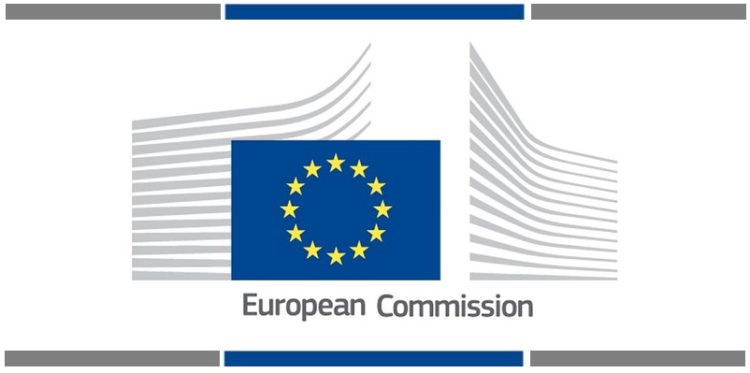By Charlotte Webster-
The EU Commission has proposed a targeted adjustment to intellectual property rules to help Europe’s pharmaceutical companies tap into fast-growing global markets and foster jobs, growth and investments in the EU.
A press release from the EU Commission yesterday pointed to a strong intellectual property rights framework in place, designed to protect Europe’s know-how and sustain the pharmaceutical industry’s world-class innovation capacity. The Commission is moving to improve the current system further and eradicate a major competitive disadvantage of EU manufacturers, the Commission proposes a targeted amendment: the so-called ‘export manufacturing waiver’ to Supplementary Protection Certificates.
Supplementary Protection Certificates (SPCs) extend patent protection for medicinal products which must undergo lengthy testing and clinical trials prior to obtaining regulatory marketing approval. Thanks to the waiver, in the future EU-based companies will be entitled to manufacture a generic or biosimilar version of an SPC-protected medicine during the term of the certificate if done exclusively for the purpose of exporting to a non-EU market where protection has expired or never existed. The waiver will support Europe’s pioneering role in pharmaceutical research and development.
Vice-President Jyrki Katainen, responsible for Jobs, Growth Investment and Competitiveness, said: “Europe is and should remain at the forefront of pharmaceutical research and manufacturing. Our rules on intellectual property protection of pharmaceuticals promote innovation and creativity. We are committed to the core rights and the length of this protection, which remain unchanged. Today we are proposing a well-calibrated adjustment to the current regime to remove a legal barrier that was preventing our companies from competing on equal terms on global markets where competition is fierce. We want to make sure that our pharmaceutical industry reaps the benefits of such competition.”
Elżbieta Bieńkowska, Commissioner for Internal Market, Industry, Entrepreneurship and SMEs, added: “Today’s proposal strikes a balance between the imperative to ensure the attractiveness of Europe for innovative pharmaceutical companies and the urgency to allow EU based generics and biosimilar to compete on the global markets. This will help create growth and high-skilled jobs in the EU. It could generate €1 billion net additional sales per year and up to 25 000 new jobs over 10 years. It will particularly benefit the many small and medium-sized enterprises in the field. In the medium term, more competition will improve patients’ access to a wider choice of medicines and alleviate public budgets.”
With the waiver, intellectual property (IP) protection for medicine production in Europe will remain the strongest in the world. SPC-protected medicines will retain their full market exclusivity in the EU.
The proposal is accompanied by a series of safeguards which will create transparency and prevent IP-infringing products from entering Member State markets. It goes hand in hand with other EU initiatives to defend Europe’s know-how and innovation leadership and protect patients against counterfeited medicines. It also complements the EU’s overall approach to ensure free and fair trade, characterised by open markets, for EU-based manufacturers.
Today’s proposal amends Regulation 469/2009 on the supplementary protection certificate for medicinal products. Once adopted by the European Parliament and Council, it will be directly applicable in all EU Member States.
CHANGES
EU and global pharmaceutical markets are undergoing profound changes. Global demand for medicines has increased massively, reaching over €1 trillion in 2017. Alongside this, there is a shift towards an ever-greater market share for generics and biosimilars. Traditionally the EU has played a pioneering role in pharmaceutical research and development, including generic medicines and biosimilars. But this leadership position is under threat.
Supplementary protection certificates (SPCs) are an intellectual property right first introduced in the EU in 1992 as an extension to a patent right. Pharmaceutical SPCs aim to offset the loss of effective patent protection for medicines that occurs due to the compulsory lengthy testing and clinical trials these products require prior to obtaining regulatory marketing approval. An SPC can extend a patent right for a maximum of five years.
EU SPC rules are the strongest in the world. While they aim to reward investment in innovation and protect intellectual property, SPCs can put EU based manufacturers of generics and biosimilar at a disadvantage with non-EU based industry, thereby preventing further innovation and job creation in Europe. Indeed, during the SPC period of protection of the product in the EU, EU-based manufacturers of generic and/or biosimilar-related products cannot currently manufacture for any purpose, including export outside the EUto countries where SPC protection has expired or does not exist, while manufacturers based in those non-EU countries can do so. This major competitive disadvantage entails a risk of delocalisation of manufacturing and loss of investment in Europe. The certificate also makes it more difficult for EU manufacturers to enter the EU market immediately after its expiry, given that they are not in a position to build up production capacity until the protection provided by the certificate has lapsed.
Many SPC protections will start to lapse from 2020, as a significant number of medicinal products will enter the public domain since their patent or SPC terms will expire. This development will generate significant new market opportunities for generics, and for biosimilars in particular. There is an urgent need to adjust the existing regulation to this situation, as the markets for generics and biosimilars are highly competitive and steadily growing and the investment decisions on the localisation of the production are being made well in advance.
Today’s proposal was announced in the Commission’s 2015 Single Market Strategy and follows various studies, an extensive consultation and a European Parliament resolution endorsing the need to introduce before 2019 an SPC manufacturing waiver.




